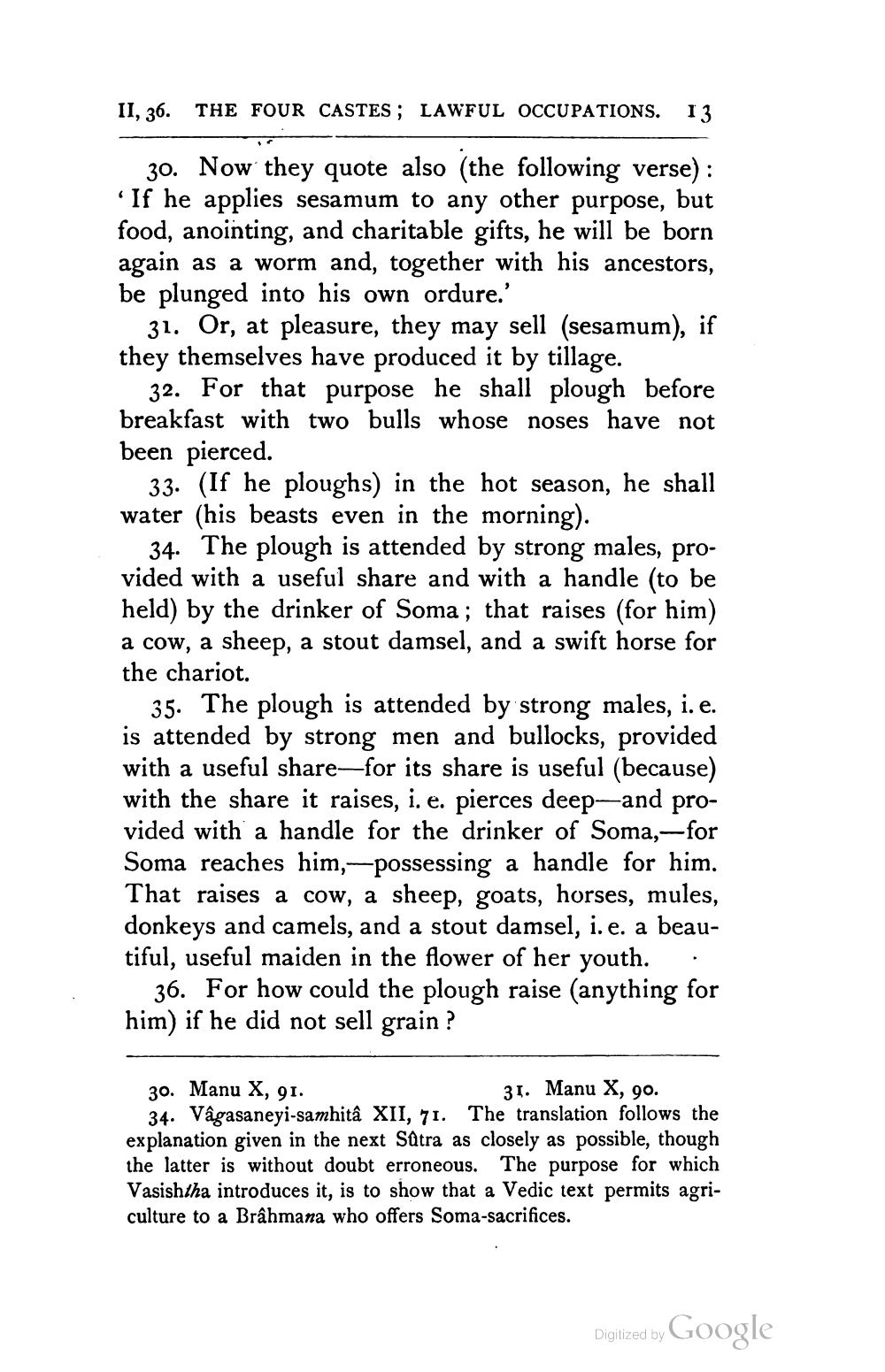________________
II, 36. THE FOUR CASTES; LAWFUL OCCUPATIONS. 13
30. Now they quote also (the following verse): If he applies sesamum to any other purpose, but food, anointing, and charitable gifts, he will be born again as a worm and, together with his ancestors, be plunged into his own ordure.'
31. Or, at pleasure, they may sell (sesamum), if they themselves have produced it by tillage.
32. For that purpose he shall plough before breakfast with two bulls whose noses have not been pierced
33. (If he ploughs) in the hot season, he shall water (his beasts even in the morning).
34. The plough is attended by strong males, provided with a useful share and with a handle (to be held) by the drinker of Soma; that raises (for him) a cow, a sheep, a stout damsel, and a swift horse for the chariot.
35. The plough is attended by strong males, i.e. is attended by strong men and bullocks, provided with a useful share—for its share is useful (because) with the share it raises, i.e. pierces deep-and provided with a handle for the drinker of Soma, -for Soma reaches him,-possessing a handle for him. That raises a cow, a sheep, goats, horses, mules, donkeys and camels, and a stout damsel, i.e. a beautiful, useful maiden in the flower of her youth. .
36. For how could the plough raise (anything for him) if he did not sell grain ?
30. Manu X, 91.
31. Manu X, 90. 34. Vâgasaneyi-samhitâ XII, 71. The translation follows the explanation given in the next Sätra as closely as possible, though the latter is without doubt erroneous. The purpose for which Vasishtha introduces it, is to show that a Vedic text permits agriculture to a Brâhmana who offers Soma-sacrifices.
Digitized by Google




